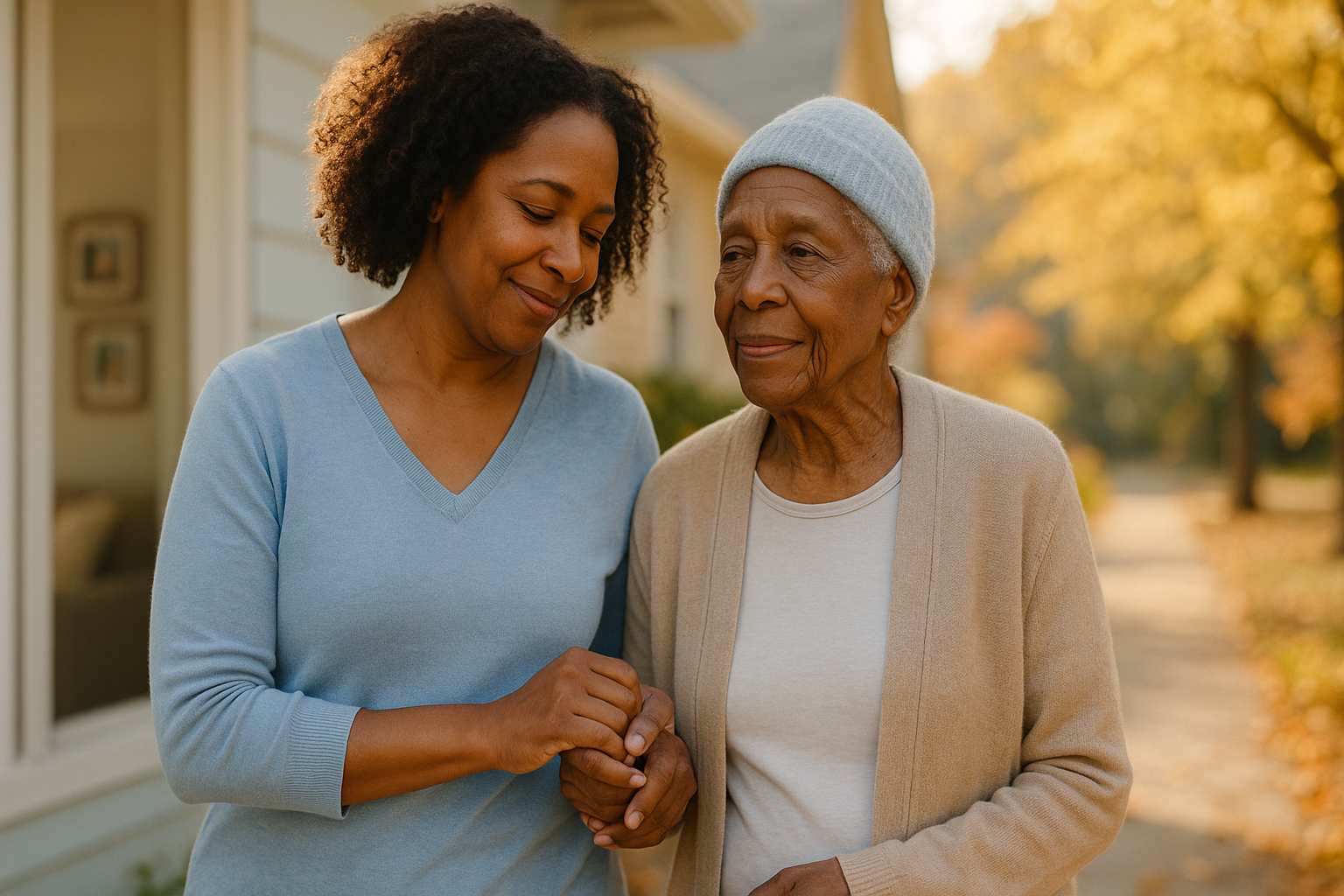November 11, 2025


Alzheimer's disease is a complex and challenging illness, not just for the person diagnosed, but for everyone who loves them. It is a journey of gradual change, loss, and profound love. If you or someone you know is navigating this path, know that understanding what's happening is the first, brave step toward coping with it. Awareness is crucial, not only for early diagnosis and intervention, but also for providing compassionate support for those affected and their caregivers.
Think of your brain like the inside of a super computer. Imagine all those wires and connections that relay information to different parts of the computer. Alzheimer's disease is like a virus on the computer that interferes with the wires and connections. A person with the disease has plaques and tangles on their brain connections, which cause death to that area of the brain, losing connection to the memories associated with that connection.
Mild (Early-Stage): The person may appear healthy but experience memory lapses (especially of recent events/conversations), difficulty finding words, trouble handling money or paying bills, challenges with planning or problem-solving, and mood/personality changes like increased anxiety.
Moderate (Middle-Stage): Symptoms become more pronounced, including increased confusion and memory loss (forgetting personal history, repeating questions), difficulty with language (reading, writing, speaking), problems coping with new situations, and changes in sleeping patterns. They may also wander, become agitated, or occasionally have trouble recognizing family and friends.
Severe (Late-Stage): In the final stage, individuals lose the ability to communicate, are completely dependent on others for care, and experience a decline in physical abilities, such as difficulty swallowing and losing control of bladder and bowel functions.
Whether you are the one diagnosed or a family member, coping involves two critical things: planning and support.
Stay Active: Continue to engage in hobbies and social activities for as long as possible. Physical exercise helps both body and mind. Keep your mind active as well, play memory games or do puzzles!
Adapt Your Environment and Routine: Use memory aids like notes, phone apps, or calendars. Develop a daily routine to reduce stress and make tasks more manageable. Simplify complex tasks into smaller, more achievable steps.
Live Well: Focus on a brain-healthy diet (like the Mediterranean diet), improve sleep, and manage stress. Continue to enjoy hobbies and social activities, adapting them as needed.
Plan for the Future: Work with loved ones and an attorney now to address financial, legal, and healthcare decisions while you can clearly express your wishes. This is a gift to your future self and your family.
Accept Support: It's okay to ask for and accept help. Prioritize activities that bring you joy.
Caring for someone with Alzheimer's is a marathon, not a sprint. Your well-being is vital!
Get Educated: The more you learn about the disease, the better you can manage symptoms and understand that the difficult behaviors are caused by the illness, not by a choice.
Build a Support System: You are not alone. Join a caregiver support group (online or in-person). Connect with the Alzheimer's Association for local resources. Ask friends and family for specific help, like picking up groceries. Remember, it is OK to accept help when someone offers.
Practice Self-Care: This is essential, not a luxury. Schedule regular time to rest, pursue your own hobbies, and seek professional help if you experience signs of depression, stress, or burnout.
Alzheimer's changes a relationship, but it does not erase the love. While the person's memory fades, your patience, compassion, and presence remain a profound source of comfort and security. Focus on the person who is still there, not the memories that are lost.
Local Resources
For immediate help or to find a group that fits, you can call:
The Alzheimer's Los Angeles 24/7 Helpline at 844.HELP.ALZ
The Alzheimer's Association 24/7 Helpline at 800.272.3900.
We're here to assist you with any questions, support, or partnership inquiries – reach out to us today.